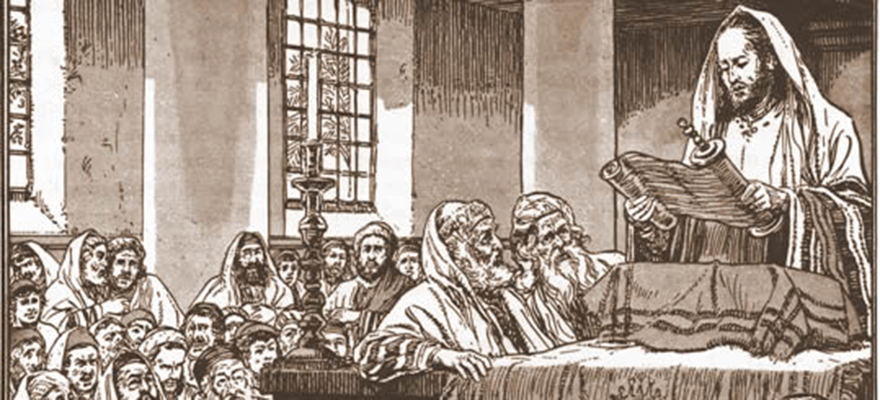It’s a strange question, isn’t it? In everything else in life, we put age requirements on areas of great responsibility (driving, voting, military service, etc). However, this pattern doesn’t seem to apply in the church. When a seven-year-old professes a “call” to preach in front of his local congregation, nobody questions it -as if a youngster could never be mistaken when it comes to life-planning. Or perhaps, we just have a fear of questioning anyone’s “calling” from God. But what if God didn’t design this process to be a private affair? What if part of the process for confirming a life-calling is intended to happen within the community of the church? Here’s what I’m talking about:
I have a friend who is plagued by a commitment he made to God. Sound strange?
When he was twelve, my friend stood before his local church on a Sunday morning and proclaimed God’s call on his life to preach. As you can imagine, his parents stood proudly with him after the service while little old ladies hugged his neck and older men shook his hand saying, “I’m so glad God is still calling young men into the ministry.”
Today, my friend has a piece of paper framed on his wall to remind him of the occasion. The certificate is impressive with the words, “Certificate of License” written in large, script letters at the top.
In the Baptist tradition, most churches issue a “license to preach” to young men as an endorsement of their qualifications. Originally, it was meant to be a way for young preachers to garner credibility for the purpose of preaching in churches and gaining experience. Admittedly, this sounds much like the biblical practice of ordaining men for ministry, although there are subtle differences.
Unfortunately, however, the preaching license has lost its weight and purpose.
That is where my friend has found such frustration. A few years after his church licensed him to preach, his desire for preaching waned. In fact, he has no desire to preach anymore at all. Yet, the fact that a church gave him an official document and celebrated his “call” leaves him in a quandary. He wonders, “Am I called but disobedient? Was I ever called to begin with? Why would my church license me if I wasn’t called?”
Can you see the problem? While such confusion could happen to adults who express a desire to preach, it seems to be much more common among those who “surrender to preach” at an early age.
Does this mean churches should discourage young men from the preaching ministry? Of course not, but perhaps churches should re-evaluate how they respond to young men who express a desire to preach. Specifically, churches should take their role seriously and consider what they are communicating through the licensing process.
At the center of my friend’s framed license, the text communicates that the man receiving the license “has given evidence that God has called him to the Gospel Ministry.” How is it possible that my friend could have displayed such evidence between the time he professed his desire and the time (five minutes later) that he was issued a license? At twelve years old, he had never taught a class, preached a sermon, or given a short devotional. No, he was simply a nice kid from a respected family in the congregation. Those credentials hardly qualify as “evidence that God has called him to the Gospel Ministry.”
I’m not the Holy Spirit, but after watching my friend struggle with this question for over twenty years, I’m fairly confident that he was never called to preach in the first place. He simply had a desire to serve God –and the only way his church communicated an avenue to for young men to serve was through becoming a preacher. (Read that last sentence again and let it sink in.)
What if his home church had taken their responsibility more seriously? What if they had waited for a period of time before licensing him? Perhaps it would have given everyone time to observe him in practice while allowing him to reflect on his desires. His pastor, parents, and other leaders could have spent purposeful time with him to aid in his discernment and decision-making.
The good news in all of this is that my friend is not preaching these days. I know that sounds strange, but it really is a positive. Preaching in a local church is not something to be taken lightly. Souls are at stake and lives are on the line. This is not a task for the unequipped or misinformed. It certainly is not a place for uncertainty.
That is perhaps the greater danger of licensing children at an early age. Many who are licensed, yet not called by God often put their doubts aside and continue preaching because they feel like they are stuck with their profession. “After all,” they reason, “I have a license. I can’t change my mind now.”
Too often, these men began by preaching terrible sermons, yet were told they “had a gift” or “preached well.” This false sense of confidence combined with a lack of correction or guidance only reinforced bad study habits, bad theology, and ultimately, bad preaching.
Many of these men go on to preach all their lives. And guess what they do when a youngster tells them they feel called to preach? That’s right, they license them and tell them, “You don’t need any help learning to preach as long as you’ve got your Bible. That’s how I learned. Now, get ready to preach in the evening service tonight.” And so the cycle continues.
How do we break the cycle? How do we help these young men struggling to obey God?
Suggestions for churches who practice licensing:
- Celebrate responsibly. Share with the congregation that the young man has a desire to preach and that the congregation needs to help him discern whether that desire is evidence of a life calling. This is accomplished by opportunities to practice teaching and preaching under the observation and care of the entire congregation.
- Don’t set him up for failure. Many churches have been known to license a young man on Sunday morning and announce that he will be preaching Sunday night. This implies that 1) that his call is beyond doubt, 2) that such a call is between the young man and God and has nothing to do with the congregation (same principle surrounding ordination in 1 Tim. 5:22), 3) that discerning such a call does not require a great deal of discernment, 4) that an examination of lifestyle is not necessary –(i.e. Disregard for the integrity of the pulpit), 5) that age and life-experience have nothing to do with qualification to preach –(i.e. Disregard for the authority of the pulpit), and 6) that a lack of biblical knowledge and understanding is irrelevant to preaching (i.e. disregard for sound doctrine).
- Consider setting a policy. It is well within the rights of the congregation to set a “licensing policy” whereby they may specify a certain amount of time in which a candidate for licensing is to be observed, skills and abilities to be demonstrated before licensing, and/or a minimum age for which the church will issue a license. A clear process for such a procedure would be helpful as well.
- Develop a plan for training young men. Whether you license the young man immediately or not, every church should consider a training plan for young men considering preaching as a calling. This is a part of the church’s discipleship responsibility and must not be neglected. A fifteen-year-old should not have to wait until Bible College to receive training for ministry.
- Give would-be preachers experience-appropriate opportunities. Instead of placing a young man in the awkward position of teaching for the first time in front of a Sunday worship crowd, give him smaller tasks first. Allow him to teach a children’s Sunday school class, VBS gathering, or youth devotional to gain experience before attempting more formal appearances.
- Offer constructive criticism and encouragement. Ask church leaders to sit-in on the young man’s teaching opportunities and meet with him for follow-up afterward.
- Consider helping young ministers afford a Bible education. Churches reveal what they value by their budgets. Formal ministry training through a trusted institution will pay dividends for the young preacher and his future congregation for life.
Taking on a more responsible approach to endorsing young ministers will have multiple effects such as:
- Reducing future confusion and frustration for young men.
- Enhance your congregation’s regard for preaching.
- Strengthen the ministries of men who have truly been called to preach.
- Protect the reputation and authority of the pulpit ministry in your church.
- Promote the strong preaching of the gospel for generations to come.
Pastors, be courageous: don’t bow down to the pressures of excited parents or the precedent of tradition. As the shepherd of your congregation, lead your church to honor the practice of preaching, help young men discern their calling, and train the next generation to preach the gospel of Christ!








